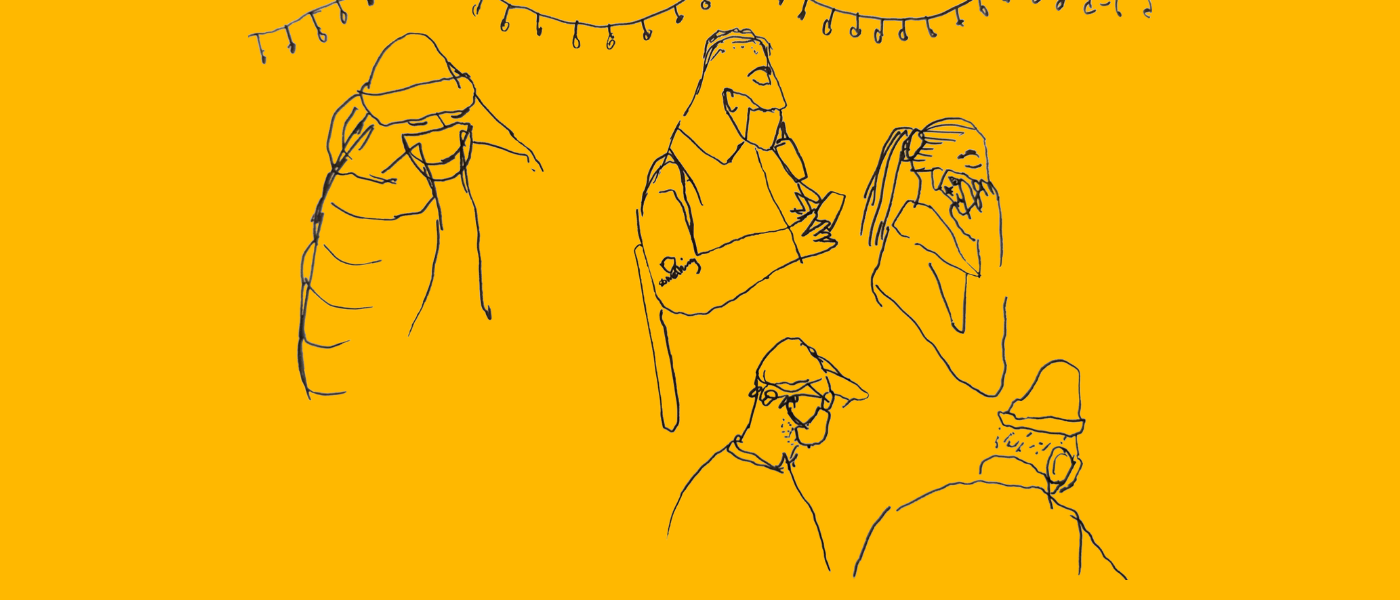This was originally posted on the PlayScapes blog, back in October 2020. Click here to take a look at the PlayScapes website.
I offer you a few questions…
- What does racism make you think of?
- Has this changed, since you were growing up?
- When was the last time you noticed racism?
- When was the last time you benefited from racism?
- Have you rushed through these questions?
As I write this, I imagine two broad groups of people who might have clicked to read this post. One group thinks that they have already “got it”. You might say “I feel sympathy towards people who experience racism so I am not part of the problem”. You might know, be friends with or work with people of colour and don’t wish any harm against them, you might think you don’t have more learning to do.
A second group might not feel quite so self-assured. You are up for learning and looking at how you contribute to unequal structures, with the aim of using your influence to disrupt it. You might align yourselves with the Ijeoma Olou quote “The beauty of anti-racism is that you don’t have to pretend to be free of racism to be an anti-racist. Anti-racism is the commitment to fight racism wherever you find it, including in yourself. And it’s the only way forward.”
There is, of course, a third group, who think there isn’t a problem. This group might be critical of the recent Black Lives Matter protests, seeing it as a lot of fuss about nothing. If you acknowledge racism, you might think it is a thing of the past, or maybe something that happens in other places.
I find writing these blogs challenging because I don’t know which of these perspectives to talk to. I have held all three perspectives, sometimes almost simultaneously. My suggestion is that rather than seeing myself as either “good” or “bad” people, as “racist” or “not racist” or “got it” or “not got it”, I aim for a continuation of learning across my life. This is never-ending work.
So, back to my first question. What does racism make me think of?
When I was a child I learnt about slavery in the US (and never about the UK’s involvement). I read To Kill a Mockingbird and The Color Purple, both books with themes of race, predominantly set in the US. This helped reinforce the idea that racism was something that happened over in racist America, probably in the past. As I got a bit older I heard about those mean white people in the UK who were shouty racists, far-right groups mostly comprised of the working classes. I learnt I was better than them.
I think my awareness that this wasn’t the whole story grew as I studied and worked in Wales, Germany, China, and Hungary alongside people outside of my middle-class English bubble. I learnt about how racism is not just about the acts of individuals. It is a structure, ingrained in the way that everything works. If you are a white person reading this, you might be thinking that white privilege is not something you necessarily choose to benefit from but benefit from it you have and will. Are you a white person feeling defensive as you read this? Do you feel uncomfortable? Before you turn away, try to linger a moment longer and think about why you feel this. Where does your discomfort travel to? To guilt? To defensiveness? To be clear, I am not wanting white readers to feel guilt or shame as they read this, as I think that is quite useless if we then just choose to put it out of our minds to protect how we feel about ourselves..and nothing changes.
Every white person is benefiting from racism and colluding with white supremacy.
Every white person is benefiting from racism and colluding with white supremacy.
I am. If you’re a white person reading this, you have too. I can share statistics with you about how this shows up if you are in the group that needs convincing. I have limited optimism about whether these statistics will work — the Brexit campaign showed me that when, despite clear evidence being shown about the impact of immigrants to the UK, people still voted from fear.
I will try it as a personal story instead. When I was born, my parents didn’t need to worry about being treated differently at a hospital because of the colour of their skin. They didn’t worry that my mum, and baby me, would receive inferior health care because of being white. As I grew up, I didn’t get treated worse at school because of the colour of my skin. When I did well, it was attributed to my hard work and when I scribbled on a classmates work and was sent to the headmistress, my behaviour was not attributed to my race. Also, the headmistress was the same race as me, as were all of my teachers and 99% of my classmates.
As I grew up and gained some independence and would spend time roaming around the local area with other white teenagers, we didn’t face stop and search. The multiple times I was found drinking alcohol, underage (once whilst distracting people driving on a motorway by waving from a bridge, trying to get the lorries to honk their horns) the police who stopped us just asked us to pour our drinks away. No one suggested we were ‘acting out’ because of our race. I was never followed around a shop or accused of shoplifting. I have experienced men make unwanted sexual comments to me in public, but I have never experienced this kind of harassment because of my race.
Are you getting bored? Do you think I am going on about this too much?
When I watched Blind Date, Robot Wars, Top of the Pops, and read magazines, I saw people that looked like me. I could always find foundation, tights and plasters which matched my skin. People didn’t make comments about my hair or my skin which were related to my race. Books that were read to me and later books I read for myself, I read about people like me. If the race of a character wasn’t mentioned in a book, then I knew they were white. I learnt that I was the norm, the centre, and people of colour were the other, the abnormal. I also learnt that being white meant superiority, being treated better and being safer. I received messages that would make me proud to be part of a country who had been so good on the world stage. I didn’t need to feel pitied or like a villain, based on the colour of my skin.
I got my first Saturday job in a cafe. I didn’t need to fear that I wouldn’t be hired because of the colour of my skin, or that I would be hired simply because of my race. I didn’t need to be scared of abuse from the customers because of being white. When I went to university, again I was taught by people who looked like me. Whilst the diversity of my community had widened, I was still part of a majority. In my more recent working life, I find myself in rooms with mostly other people that are the same race as me, so I don’t need to fear being treated badly because of being white. In conversation, no one ever asks me to be a spokesperson for my race. If I challenge someone’s opinion, I do not need to worry about toning down my voice in fear that someone will bring out a stereotype about me and the colour of my skin.
As a white woman, I do not have to think about ways in which to make sure I don’t scare people. In general, I choose when to think about race and whether I want to put resources towards it, rather than having no choice and trying to find a way to cope. If I find thinking about this tiring or stressful, or I feel angry or sad, I can take a break.
Not every person of colour will have experienced all of those things, nor do I want to suggest that all people of colour have the same experience. Race, class, gender, sexuality, ability, and faith all have varying levels of impact from moment to moment. The difference that I am writing about is that I never had to think about or use any other resources in regards to coping with racism. Even if I don’t want to benefit from my whiteness, I am benefiting from it in all the ways and countless more which I have written about. Understanding this is important but acknowledging this is not enough. Often, white privilege can be seen as something handed to white people and outside of our control. This is not enough. I want to disrupt white privilege.
How we understand racism is important in how we go about disrupting it. Racism adapts over time. For example, in the context I am writing from, racism used to be more commonly overt. Now, it is generally much more insidious and sneaky. Most people say the socially acceptable: racism is bad and that they are not racist. We learn that racism is carried out by unkind people doing individual, unkind things who consciously want to harm people of colour. But this understanding of racism actually helps to preserve it as we pay attention neither to the wider-ranging problem, nor to ourselves. If you are a white person and have found during reading this that you feel denial and defensiveness about your own part in this, this can also protect racism as it avoids disrupting it. If we feel sad and guilty but nothing changes, we are also doing nothing to disrupt racism.
Yes, it is uncomfortable, yes, we will all mess up. But unless we educate ourselves about how our society works and examine our part in it, things will continue as they are. If someone challenges an assumption you have or something you have said, it can feel pretty terrible. Can you try and stay in that discomfort for a little longer and see it as an opportunity that you are being given? If we remain focused on the abstraction of other people’s racism, we are turning away from a great opportunity involving our own development and influence.

